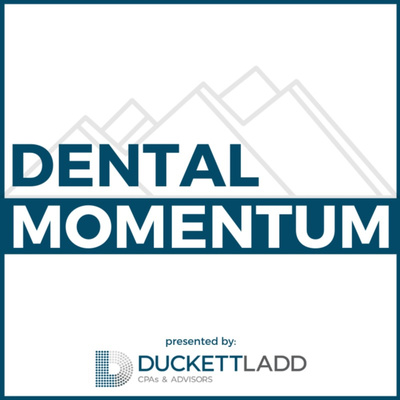Navigating the Path to Buying a Dental Practice
Buying a dental practice can be an exciting yet complex process. To ensure a smooth transition into ownership, buying a dental practice requires careful planning and informed decision-making.
For a quick overview, here’s what you need to know to start your journey:
- Assess Your Goals and Finances: Identify what you want from owning a practice and evaluate your financial readiness.
- Understand Costs: Be aware of startup and investment costs. The ADA estimates that initial investments can be around $500,000.
- Research and Location: Choose the right location by considering demographics and patient ease of access.
- Advisory Team: Hire a team of advisors to help navigate through financial, legal, and operational roadblocks.
- Due Diligence: Verify all aspects of the practice to ensure it meets your expectations and requirements.
Taking these steps will help you embark on a successful career as a practice owner. The location of your practice and the demographics of the area play essential roles in determining your success. By carefully analyzing these factors, you can better serve your patients and grow your business effectively.
Want the quick takeaways?

Understanding the Costs Involved
Buying a dental practice is a significant investment. The American Dental Association (ADA) estimates that the initial investment to start a new dental practice is around $500,000. This figure includes costs like securing an office, purchasing equipment, and covering payroll costs while your practice gains its footing.
Startup Costs
Startup costs are the initial expenses you will incur when setting up your practice. These typically include:
- Office Space: Leasing or purchasing a location can be one of your biggest expenses. Rent or mortgage payments are substantial but predictable.
- Equipment: Dental chairs, X-ray machines, sterilization equipment, and other essential tools can be costly. Upgrading to energy-efficient equipment might save money in the long run.
- Utilities: Regular operations, office management, and equipment usage all contribute to your utility bills. Simple adjustments like powering off computers between shifts can help reduce these costs.
- Insurance: Insurance is essential but highly variable based on your needs and preferences. It’s a cost you cannot overlook.
- Marketing: Allocating part of your budget to marketing is crucial to attract new patients. Social media spend, for example, has nearly doubled recently and accounts for a significant portion of marketing budgets.
Initial Investment
Your initial investment includes the startup costs plus other expenses such as:
- Licensing and Permits: You need to be licensed to practice, and this may involve passing the National Board Dental Examinations (NBDE) and meeting state-specific requirements.
- Staffing: Hiring skilled staff is crucial. Payroll and benefits add up, and you might also need to hire a marketing agency, HR firm, or CPA to manage non-core business functions.
- Legal and Financial Advisors: Engaging advisors is essential for navigating the complex process of buying a dental practice. They can help you avoid legal and financial pitfalls.
- Technology: Software for appointment scheduling, patient records, and billing are indispensable. Ensure these systems are HIPAA-compliant to avoid legal issues.
ADA Estimate
The ADA estimate of $500,000 is a general guideline, but your actual costs may vary based on factors like location, practice size, and the type of dentistry you practice. For example, a practice in a rural area might have lower rent but higher marketing costs to attract patients.
- Case Study: Dr. Allen T. Read, D.D.S., successfully transitioned his practice with the help of a knowledgeable broker. He understood his needs and navigated the financial and legal complexities efficiently.
Understanding these costs will help you plan better and make informed decisions. Next, we’ll dive into the steps to buy a dental practice, starting with clarifying your goals and assessing your finances.
Steps to Buy a Dental Practice
Before diving into the process of buying a dental practice, it’s crucial to clarify your goals and assess your financial readiness. Ask yourself:
- What type of dentistry do I want to practice?
- Where do I want my practice to be located?
- What are my long-term career aspirations?
Once your goals are clear, evaluate your budget. Review your personal and professional finances to determine how much you can afford to invest. This includes savings, potential loans, and any other financial resources at your disposal.
Engage a Dental Practice Broker
A dental practice broker can be an invaluable ally in your journey. They have access to a variety of opportunities and can help you navigate the complexities of the market. Brokers often have inside knowledge of practices that are for sale and can provide you with crucial market research.
Conduct Due Diligence
Due diligence is a critical step in the process. This involves a thorough examination of the practice’s financial records, patient base, and legal compliance.
- Financial Records: Review profit and loss statements, tax returns, and other financial documents.
- Patient Base: Assess the number and demographics of patients.
- Legal Compliance: Ensure the practice complies with all local, state, and federal regulations.
Secure Financing
Securing financing is often one of the biggest hurdles. There are several financing options available, including:
- Dental Practice Loans: These are specifically designed for dental practice acquisitions.
- SBA Loans: Small Business Administration loans can offer favorable terms.
Tip: Check your credit score and consider how much you need to borrow. Compare interest rates and evaluate collateral requirements.
Negotiate Terms and Finalize Purchase
Once due diligence is complete and financing is secured, the next step is to negotiate terms and finalize the purchase. This involves drafting a purchase agreement with the help of legal and financial advisors.
- Legal Advisors: They ensure that all legal aspects are covered and that your interests are protected.
- Financial Advisors: They help you understand the financial implications and ensure you’re getting a good deal.
After negotiating and finalizing the purchase agreement, you will need to ensure all licensing and permits are in order. This is crucial for a smooth transition.
By following these steps, you can make a well-informed decision and set yourself up for a successful career as a dental practice owner. Next, we’ll explore key considerations when buying a dental practice, including location, demographics, and patient base.
Key Considerations When Buying a Dental Practice
Location and Demographics
Choosing the right location is crucial. It’s not just about being easy to find, but also about being in a place with high demand for dental services. You want a spot that does some of your advertising for you, like being near a busy road or a popular shopping area.
Demographics matter too. A comprehensive demographics report helps you understand the patient base you’ll be serving. Factors to consider include:
- Age: Are you in an area with lots of families, older adults, or young professionals?
- Income: Can the local population afford your services?
- Competition: How many other dental practices are nearby?
For more details, you can read our blog on How Demographics Impact Your Dental Practice Location.
Patient Base and Staff
Patient retention is key for a successful practice. Find out how many active patients the practice has and what their retention rate is. A high retention rate means loyal patients who are likely to stay with you after the transition.
Staff retention is equally important. Ask if the current staff will stay on after the transition. Knowing the roles and experience of each staff member can help you plan your management strategy better. Employment contracts should be reviewed to ensure there are no surprises.
Equipment and Technology
Equipment condition can make or break your initial investment. Ensure that all dental chairs, X-ray machines, and other tools are in good working order. Check for any maintenance contracts or equipment leases that you might inherit.
Keeping up with technology is also vital. Modern dental software for records and billing can streamline operations and improve patient care.
Lease and Real Estate
Is the practice located in a leased space or is the real estate included in the sale? If it’s leased, review the lease terms carefully. Look for options to renew the lease and any clauses that could affect your practice.
If you’re buying the real estate, get a valuation to ensure you’re paying a fair price. Real estate can be a significant part of your investment, so make sure it’s worth it.
Compliance and Legal Requirements
Compliance with regulations like HIPAA is non-negotiable. Make sure the practice maintains patient records securely and follows all legal guidelines.
Consider the legal structure of your new practice. Will you incorporate, form a partnership, or operate as a sole proprietor? Each option has its pros and cons, so consult with a legal advisor to choose the best structure for you.
By considering these key factors, you can make a well-informed decision when buying a dental practice. Next, we’ll explore various financing options to help you secure the funds needed for your acquisition.
Financing Options for Your Practice Acquisition
When you’re ready to buy a dental practice, understanding your financing options is crucial. Here are the main types of financing you can consider:
Traditional Loans
Traditional loans from banks and financial institutions are a common way to finance a dental practice. These loans typically offer:
- Competitive interest rates
- Extended repayment terms
- Tailored packages for dental professionals
Banks understand the unique needs of dental practices and often provide terms designed to help you succeed. However, be prepared for a thorough review of your financial history and credit score.
SBA Loans
The Small Business Administration (SBA) offers government-backed loans, like the SBA 7(a) Loan Program. These loans come with:
- Favorable terms
- Lower down payments
- Longer repayment periods
SBA loans are an excellent option if you have a strong business plan but lack substantial upfront capital. They are designed to support small businesses, making them a good fit for new dental practice owners.
Private Lenders
Private lenders and dental practice acquisition loans offer another route. These lenders might have:
- Flexible terms
- Faster approval processes
- Higher interest rates
While private lenders can be more accommodating, understand the terms and ensure they align with your financial goals.
Seller Financing
In some cases, the seller may offer financing options. This can include:
- Deferred payments
- Lower interest rates
- Flexible terms
Seller financing can make the transition smoother and is often more flexible than traditional loans. It also shows the seller’s confidence in the practice’s continued success under your ownership.
Alternative Methods
If traditional routes don’t work for you, consider these alternative financing methods:
- Home equity loans: Use the equity in your home to secure a loan.
- Retirement account financing: Tap into retirement funds to finance your purchase.
- Dental practice transition loans: Specialized loans tailored for dental practice transitions.
Each method has its pros and cons, so consult with a financial advisor to choose the best option for your situation.

By exploring these financing options, you can find the best fit for your needs and secure the funds necessary to buy a dental practice. Next, we’ll address some frequently asked questions to further guide you through this process.
Frequently Asked Questions about Buying a Dental Practice
How much does it cost to open a dental practice?
Opening a dental practice is a significant financial investment. According to the American Dental Association (ADA), the average initial investment can be around $500,000. This amount typically covers:
- Securing an office space
- Purchasing equipment like X-ray machines, sterilization equipment, and dental chairs
- Covering payroll costs until the practice becomes profitable
That costs can vary based on location, the size of the practice, and the quality of the equipment. It’s essential to have a detailed budget and financial plan before embarking on this journey.
What does it mean to buy a dental practice?
Buying a dental practice involves purchasing an existing dental office, including its assets and patient base. Here are some key elements involved:
- Assets: This includes dental equipment, office furniture, and sometimes the real estate.
- Patient Base: You acquire the existing patients, which can provide immediate revenue.
- Staff: Often, the existing staff will stay on, providing continuity of care.
- Goodwill: This intangible asset includes the practice’s reputation and patient loyalty.
The process requires thorough due diligence to evaluate the practice’s financial health, legal compliance, and operational efficiency. It also involves negotiating terms and securing financing.
What multiple do dental practices sell for?
Dental practices typically sell for a multiple of their annual revenue or earnings before interest, taxes, depreciation, and amortization (EBITDA). The multiple can vary widely based on factors like location, specialty, and financial performance. Generally, dental practices sell for:
- Revenue Multiple: 0.6 to 1.0 times annual revenue for general practices
- EBITDA Multiple: 4 to 7 times EBITDA for specialty practices
For example, if a general dental practice generates $1,000,000 in annual revenue, it might sell for $600,000 to $1,000,000. These multiples can fluctuate based on market conditions and the specific attributes of the practice.
By understanding these key aspects, you’ll be better prepared to navigate the process of buying a dental practice. Next, let’s explore some essential considerations to keep in mind during your acquisition journey.
Conclusion
Buying a dental practice is a significant milestone in your career. It involves careful planning, thorough research, and diligent execution. From clarifying your goals and assessing your finances to negotiating the final purchase agreement, each step is crucial for a successful acquisition.
At Duckett Ladd, we specialize in dental practice mergers and acquisitions. Our team of experts is dedicated to guiding you through every stage of the process. We provide personalized support to ensure that your transition is smooth and successful.
The location and demographics of your new practice, the condition of the equipment, and the retention of both patients and staff are all key factors to consider. Additionally, securing the right financing and ensuring compliance with legal requirements are essential steps that should not be overlooked.
By following the outlined steps and considering the key aspects, you can confidently navigate the complex journey of buying a dental practice. If you need expert guidance, don’t hesitate to reach out to us at Duckett Ladd. We’re here to help you achieve your dream of practice ownership.
For more information on our services, visit our Dental Practice Mergers and Acquisitions page.
Final thoughts: Buying a dental practice is more than just a financial investment; it’s an investment in your future and your professional growth. With the right approach and support, you can turn this opportunity into a thriving, successful practice.








